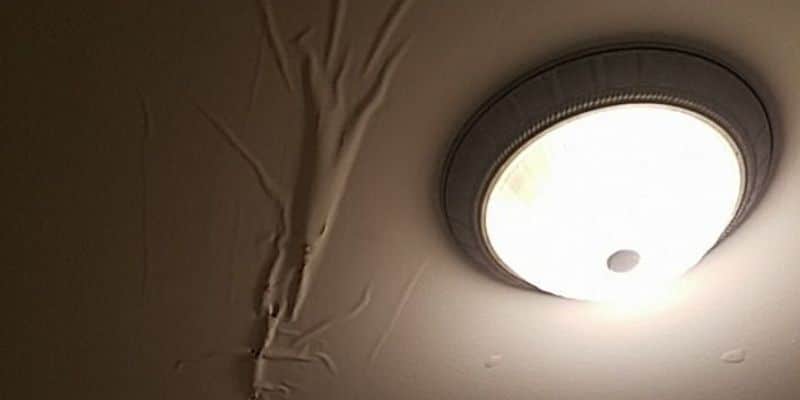Preventative Measures for the Six Most Common Causes of Water Leaks in Homes
Preventative Measures for the Six Most Common Causes of Water Leaks in Homes
Blog Article
How do you really feel about How to detect water leaks in your home?

Leakages not only trigger waste of water however can also trigger unneeded damages to your residence and also promote undesirable organic growth. Water leakages may go unnoticed given that many of the pipework in our house is hidden. By looking and understanding for day-to-day scenarios that create leaks, you can safeguard your home from future leaks and also unneeded damage. Today, we will look at 6 leakage causes that may be creating your pipes to trickle.
Instantaneous temperature adjustments.
Severe temperature modifications in our pipelines can cause them to increase and acquire unexpectedly. This growth and also contraction may create cracks in the pipes, specifically if the temperature are listed below cold.
Corroded water systems
This might be the cause of discoloration or bending on your water pipelines. If our plumbing system is old, consider replacing the pipes since they are at a higher risk of rust than the newer versions.
Malfunctioning Pipeline Joints
The factor at which your pipelines attach is regularly the weakest web link in the waterline. Pipeline joints can deteriorate in time, resulting in water leaks. The majority of pipeline joints are not conveniently noticeable. If you have noisy pipelines that make ticking or banging sounds, especially when the hot water is activated, your pipeline joints are possibly under a great deal of pressure. It is advisable to have your plumber check your system once a year.
Encroaching origins
A lot of water leaks begin outside your home rather than inside it. If you discover an abrupt reduction in water pressure, state in your faucet, take time to go out as well as analyze your yard. You could see damp spots or sinkholes in your backyard, and that may indicate that tree roots are getting into water lines triggering water to leak out. You can have your plumber check for intrusion, particularly if you have trees or hedges near your residential or commercial property.
Poor Water Connectors
Sometimes, a leakage can be triggered by loosened hoses and pipelines that provide your appliances. Generally, shifting is what triggers the loose water Links. You might find when it comes to a washing equipment, a pipe may spring a leakage because of shaking throughout the spin cycle. In case of a water links leakage, you might notice water running straight from the supply line or puddles around your home appliances.
Clogged Drains
Obstructed drains could be annoying as well as inconveniencing, yet they can often end up creating an overflow resulting in break pipelines. Keep eliminating any kind of products that may go down your drains pipes that could block them to avoid such hassles.
All the above are causes of leakages but not all water leakages result from plumbing leakages; some leaks could come from roof covering leaks. All leakages should be fixed quickly to avoid water damage.
Leakages not only create waste of water yet can also cause unnecessary damages to your house as well as advertise undesirable natural development. By understanding and looking for daily circumstances that trigger leaks, you can secure your residence from future leaks as well as unnecessary damage. Today, we will look at six leak triggers that might be causing your pipelines to leak.
At times, a leakage can be caused by loosened hoses and also pipes that provide your devices. In case of a water links leakage, you might discover water running directly from the supply line or puddles around your home appliances.
How To Check For Water Leak In Your Home
How To Check for Leaks
The average household's leaks can account for nearly 10,000 gallons of water wasted every year and ten percent of homes have leaks that waste 90 gallons or more per day. Common types of leaks found in the home are worn toilet flappers, dripping faucets, and other leaking valves. These types of leaks are often easy to fix, requiring only a few tools and hardware that can pay for themselves in water savings. Fixing easily corrected household water leaks can save homeowners about 10 percent on their water bills.
To check for leaks in your home, you first need to determine whether you're wasting water and then identify the source of the leak. Here are some tips for finding leaks:
Take a look at your water usage during a colder month, such as January or February. If a family of four exceeds 12,000 gallons per month, there are serious leaks.
Check your water meter before and after a two-hour period when no water is being used. If the meter changes at all, you probably have a leak.
Identify toilet leaks by placing a drop of food coloring in the toilet tank. If any color shows up in the bowl after 10 minutes, you have a leak. (Be sure to flush immediately after the experiment to avoid staining the tank.)
Examine faucet gaskets and pipe fittings for any water on the outside of the pipe to check for surface leaks.
Undetected water leaks can happen without the home or business owner even realizing. If you suspect a water leak, but not able to find the source. It is time to contact a professional water leak detection service, The Leak Doctor.
How To Find a Water Leak In Your Home
https://www.leakdoctor.com/blog/How-To-Check-For-Water-Leak-In-Your-Home_AE197.html

I was made aware of that article about How to detect water leaks in your home through an associate on a different web blog. Sharing is caring. Who knows, you will be doing someone a favor. Thank-you for going through it.
Go Services Report this page